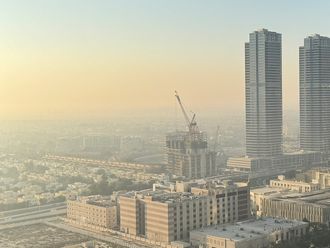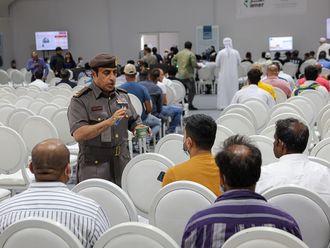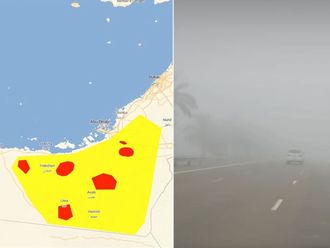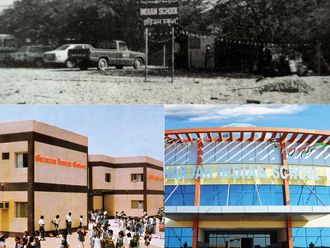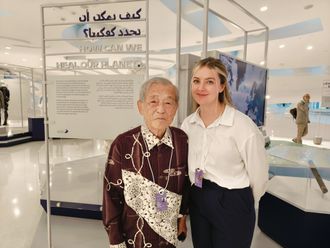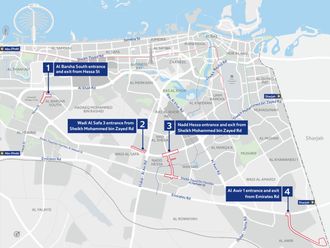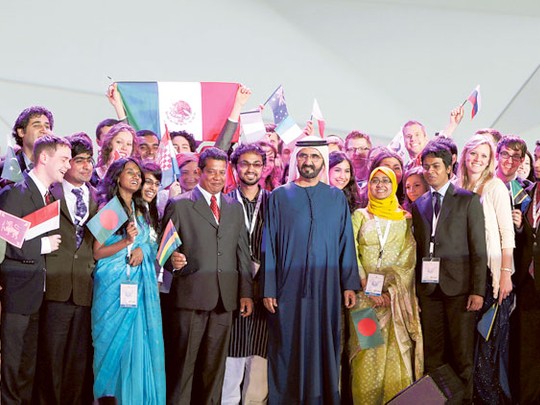
Dubai: For 30-year-old Emirati alumni Arif Al Rahoomi, the 25th anniversary of the Higher Colleges of Technology (HCT) is a time for reflection.
The computer networking diploma holder said he would not haven chosen any other college if given a chance to go back in time.
Al Rahoomi, currently senior mass communication officer at Dubai Public Prosecution, said HTC’s edge is in its “practical approach to learning”.
“Learning at HCT gives you a feeling you won’t find at other colleges. That’s because you put into practice what you study. It’s the practical application coupled with theoretical studies that’s fulfilling,” he said.
“I had a good experience of my work placement project because at HTC they pick the best places for you, especially in the government sector. They have a clear idea of the market needs, and they prepare the graduates accordingly. That is what helps drive national development too.
“I’m very proud to have been part of HCT, it’s well recognised here in the UAE and internationally too. This anniversary resembles the foundation stone of well-known educational monuments in the UAE. With top-notch faculty and facilities, the market is gaining quality graduates.”
Today, HCT is said to be the UAE’s largest higher education institution. But it didn’t reach this success overnight, starting life in 1988, when the UAE’s founding father, Shaikh Zayed Bin Sultan Al Nahyan, established HCT by dederal decree.
Back in those days, only 240 students were enrolled at four HCT colleges. Today, some 20,000 male and female students attend its 17 campuses across the UAE.
And about 60,000 academic certificates have been awarded so far.
The institution is celebrating its 25th anniversary this year, with the HCT community looking back at the milestones.
Its website (hct.ac.ae) has a dedicated section looking back at eventful occasions and achievements down the years.
It says: “In 1985, Shaikh Nahyan Bin Mubarak Al Nahyan [Minister of Culture, Youth and Community Development and Chancellor of the HCT] made a commitment to establish a new system of post-secondary education for UAE nationals no matter where they lived within the UAE, which would stress the ideals of productivity, self-determination and excellence.”
The vision was to develop an opportunity for Emiratis to prepare for “professional and technical careers in a rapidly developing society which would create a new generation of work-ready graduates to help maintain the rapid growth of the economy,” the website adds.
Shaikh Zayed fulfilled that vision, it continues, and the vision lives on with the continued support of President His Highness Shaikh Khalifa Bin Zayed Al Nahyan; His Highness Shaikh Mohammad Bin Rashid Al Maktoum, Vice-President and Prime Minister of the UAE and Ruler of Dubai; General Shaikh Mohammad Bin Zayed Al Nahyan, Crown Prince of Abu Dhabi and Deputy Supreme Commander of the UAE Armed Forces; and the rulers of other emirates.
The HCT-difference was in its educational approach – a new type of “hands-on, or applied,” system designed for young Emiratis venturing into the professional world.
This focus on “learning by doing” meant the study course and practical training were constantly shaped by real-world applications and developments.
Another first by the HCT, says the website, was in the UAE digital sphere, with wireless networks sprawling its campuses, enabling faculty and students to study and interact via laptops and mobile devices.
And the efforts went further, with international partnerships formed so students could learn about best practices abroad and other cultures as well.
The website adds that those ideas were cemented with the hosting of international conferences, like Education Without Borders and Festival of Thinkers, and overseas trips by students for work experience, language training and cultural exchange.
That cultural diversity is also reflected in its UAE campus network, with over 2,000 employees, faculty and staff from 50 countries sharing expertise and experiences.



